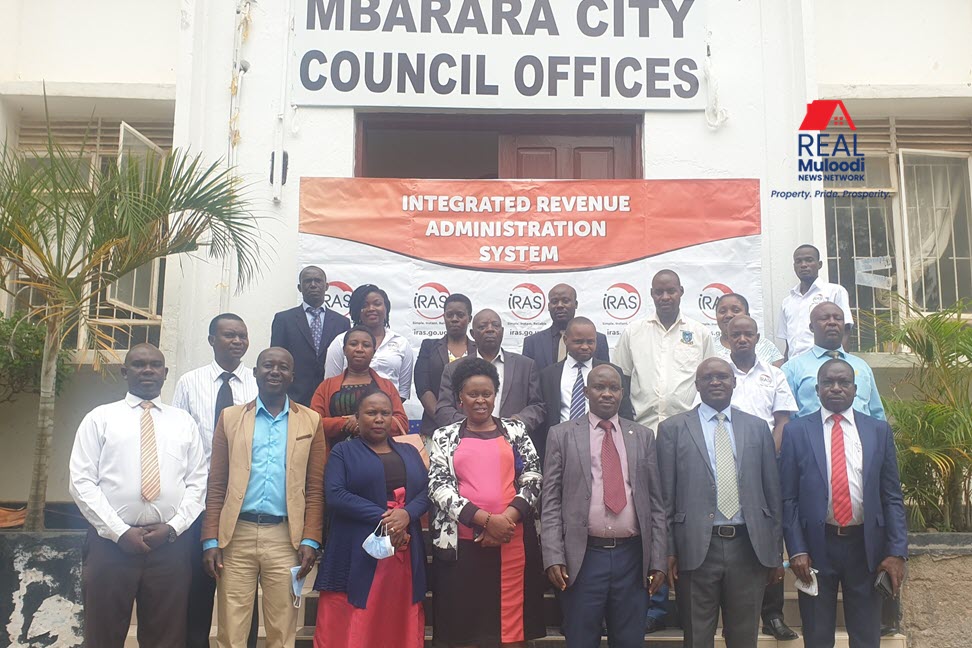UGANDA, Kampala | Real Muloodi News | Uganda’s 10 newest cities are expected to realise a substantial increase in revenues from the annual collection of property rates tax this financial year, according to the Local Government Finance Commission (LGFC).
It is estimated that property rates tax in the cities of Mbarara, Hoima, Fort Portal, Gulu, Jinja, Mbale, Masaka, Lira, Soroti and Arua, will generate a total of UGX 51.9 billion of revenue in FY 2022/23, which is a notable increase compared to the UGX 28.8 billion collected in FY 2021/22.
According to LGFC data, this will represent roughly 20.5% of the UGX 250 billion in revenues to be generated by local government outside of the Kampala Metropolitan Area.
The substantial increase follows an exercise to update the property valuation registers in the new cities earlier this year. Local Government conducted the GIS-enabled property valuations with the support of USAID, as part of the Domestic Revenue Mobilisation for Development (DRM4D) project, with the aim of recording all old and new commercial properties which will be taxed for the next five years.
According to Mr James Ogwang, principal financial analyst and head of local revenues for the LGFC, property tax performance is improving significantly thanks to the updated valuation registers in the new cities.
Jinja City is projected to generate the highest percentage of property rates revenue, with UGX 11 billion expected in FY 2022/23 compared to the UGX 8.1 billion it generated in FY 2021/22.
Mbarara City is forecast to be the next biggest revenue earner from property rates, with UGX 9.1 billion in collections expected in in FY 2022/23, up from 4.8 billion in FY 2021/22, followed by Arua City, with UGX 5.3 billion expected this financial year, up from UGX 2.7 billion last year.
Other Factors Contributing to Property Rates Revenue Increases in the New Cities
In addition to the property revaluations, government continues to implement several measures aimed at increasing property-related income earned outside the Kampala Metropolitan Area.
For example, the Integrated Revenue Administration System (IRAS) has also helped to increase revenues. IRAS is a web and mobile application platform that aids local governments in collection of local revenue from electronic taxpayer registration, assessment, billing, and payment facilitation.
Mr James Ogwang adds, “Beyond the property valuation registers, there has been a lot of sensitisation conducted by government and other partners. At least many property owners [in areas governed by local governments] are now aware of why they should pay these taxes.”
Property rates are critical for cities to raise the revenues necessary to provide much-needed services like city planning and management including road construction and maintenance, street lights, water and sanitation, local health clinics, antimalarial drugs, security, among other services provided through the City Councils.
A minimum of 75 per cent of the monies raised from property rates must be allocated to the provision of services, with a cap of 25 per cent of the revenues raised catering for administrative costs.
Ripplenami Uganda is one company that has been working to ensure property owners are engaged in discussions with local authorities about how property rates revenues are spent in their communities, through a campaign dubbed ‘Services and Fair Tax for Property Owners.’
A number of events have already been conducted in Mbarara City as part of the “Services and Fair Tax for Property Owners” campaign, which seeks to improve the state of services by educating and advocating for greater tax compliance regarding property rates, in return for local government accountability for ensuring that the money collected goes toward providing services.
Similar sensitisation initiatives by Ripplenami Uganda are anticipated in Hoima and Gulu, among other cities.
Mr Ogwang points to the importance of such campaigns, saying that the lack of local governments to relate service delivery to such fees and the ignorance of many property owners are contributing to the underperformance of the property tax.
The Local Government (Rating) Act of 2005 governs property tax, which has been designated as a key source of income for local governments, particularly those in metropolitan areas.
Own-occupied residential properties, which make up more than 60% of the residential properties in urban municipalities in Uganda, are free from property rates tax, as is vacant land.
Property rates are only levied on commercial properties. It is a tax on all immovable property or buildings that are commercially managed like schools, rented houses, rented shops, factories, hotels, universities and any part of which is used for the purpose of business, even if it is occupied by the owner of the business.
Property rates tax is is different from rental income tax. Property rates tax is based on a property’s value, whereas rental income tax is based on the rental income you earn from a rented property.
The LGFC estimates that there are at least 250,000 properties with assessed property rates, with an average compliance rate of roughly 70%.
READ MORE LIKE THIS:
Tax Incentives and Exemptions for Construction and Tourism Sectors
Gov’t Wants to Increase Property Tax Collections in New Cities
Mbarara City Property Owners Demand More Property Tax Awareness Campaigns



